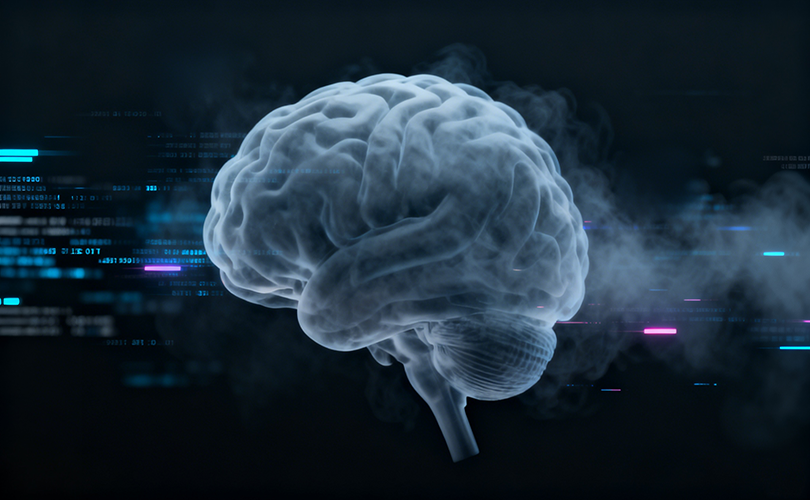Evergreen Therapeutics has announced positive Phase II clinical data for EG-501, an investigational, AI-enabled therapy for cognitive impairment in Neuropsychiatric Systemic Lupus Erythematosus (NPSLE). As a potential first-in-disease therapy, these results underscore the significant promise of integrating AI with drug R&D to address complex conditions.
01 BACKGROUND
Systemic Lupus Erythematosus (SLE) is a complex, autoimmune-mediated diffuse connective tissue disease affecting millions globally, with an increasing incidence. Cognitive impairment (CI) is one of the most common clinical manifestations of SLE, severely impacting patients' daily function and social engagement. In NPSLE patients, cognitive deficits are highly prevalent (57%-80%), often presenting as "brain fog," memory deficits, and executive dysfunction. This condition doubles the risk of unemployment, significantly degrades quality of life, and imposes a substantial socioeconomic burden (approximately $20 billion annually in the US alone). Currently, no FDA-approved drugs specifically target this condition.
EG-501 is a small-molecule oral tablet for treating NPSLE-related cognitive impairment. It acts as an NMDA receptor antagonist, reducing neuroinflammation and providing neuroprotection in the brain. This Phase II clinical trial was conducted at three renowned US academic centers: Vanderbilt University Medical Center, Cleveland Clinic, and The University of Texas Health Science Center at Houston. The trial aimed to evaluate the efficacy of EG-501 in improving objective neuropsychological function in patients with Systemic Lupus Erythematosus (SLE).
02 DESIGN/METHODS
ClearMEMory was a phase II, multi-site, randomized, double-blind, placebo-controlled trial. Potential participants meeting pre-screening criteria were screened for objective dysfunction using the Repeatable Battery for the Assessment of Neuropsychological Status (RBANS). Individuals scoring one age-adjusted standard deviation below population norms were eligible for the study and randomized to EG-501 or placebo stratified by NMDA receptor antibodies. Participants underwent a weekly dose escalation to identify the maximum tolerated dose 10→40 mg/d. The primary outcome was change in RBANS from baseline to endpoint (week 12). Other measures included RBANS subscales and measures of lupus disease activity, fibromyalgia, depression/anxiety, and global impression of change (PGIC).
03 RESULTS/CONCLUSIONS
EG-501 significantly improved patients' objective neuropsychological performance.
The study observed significantly greater improvement of RBANS total score in EG-501 compared to placebo groups (EG-501: +10.4; Placebo: +4.2; p=0.032). Responders were higher in the EG-501 than placebo groups (+8: 67% vs 36%, NNT=3.3; +5 MCID: 78% vs 56%, NNT=4.6). The RBANS immediate memory subscale was also improved (P=0.023). More participants taking EG-501 were improved or much improved on PGIC. There were no significant differences in other outcome measures.
Dr. Charles Lee, Co-founder and Chief Medical Officer of Evergreen Therapeutics, commented: "The Phase II clinical results for EG-501 are highly encouraging, marking an important milestone resulting from our team's long-term commitment to integrating AI-driven clinical technologies into drug development. We are confident in the potential of EG-501 to benefit patients suffering from lupus-related cognitive impairment. Furthermore, the compound’s core mechanism—targeting neuroinflammation—holds broad therapeutic promise. Looking ahead, it may also be applied to treat cognitive impairment associated with other conditions, including rheumatoid arthritis (RA), Sjögren's syndrome, and Parkinson's disease, bringing new hope to an even larger patient population."
Notably, both the research on cognitive impairment in systemic lupus erythematosus (SLE) and the drug repurposing efforts conducted during the development of EG-501 were enabled by Evergreen Therapeutics' proprietary AI platform. By systematically integrating AI-driven "dry lab" predictions with clinical "wet lab" validation throughout the drug development cycle, Evergreen has gained deeper insights into the role of GRIN2A in neurological and immunological diseases. The AI model successfully uncovered associations that were difficult to capture using traditional approaches, demonstrating the platform's strong capability in repurposing drugs for rare central nervous system (CNS) disorders. This AI-facilitated repurposing strategy is projected to reduce drug development costs dramatically—from the conventional $2–3 billion to approximately $50 million—and shorten the development timeline from 10 years to just 2–3 years. Such improvements substantially boost R&D efficiency, lower development risks, and pave new avenues for pharmaceutical innovation.
About Evergreen Therapeutics
Evergreen Therapeutics is an innovative pharmaceutical company headquartered in Maryland, USA, dedicated to advancing the application of artificial intelligence in both biological research and clinical development. With a steadfast commitment to tackling diseases that present urgent unmet medical needs, the company strives to develop global first-in-disease therapeutics. Currently, three of Evergreen’s drug candidates have received FDA clearance to enter clinical trials. In addition, the company has filed more than 60 patent applications across key global pharmaceutical markets, including China, the United States, Europe, and Japan



